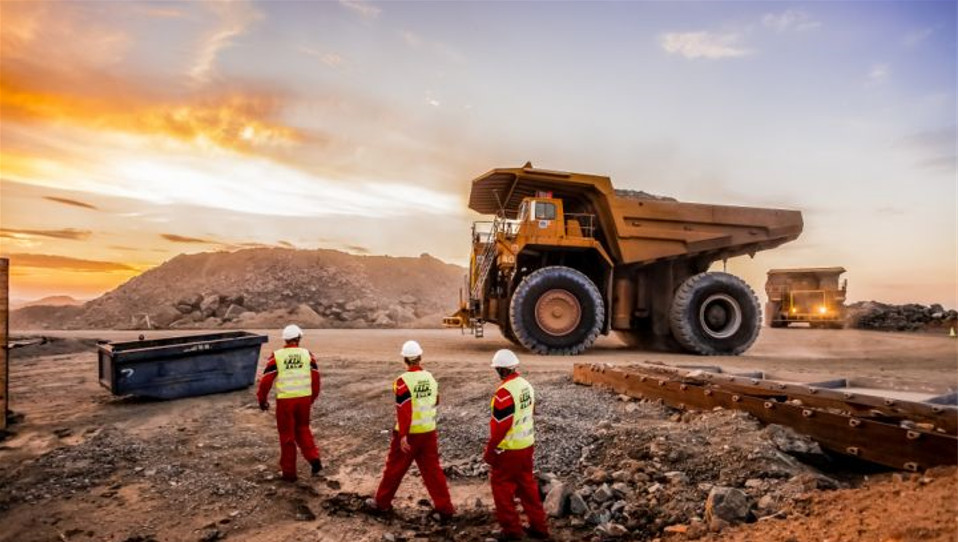Mining for critical minerals: what is the auction process, and why is it important? (Indian Express)

- 08 Dec 2023
Why is it in the News?
A total of twenty critical mineral blocks are currently open for commercial bidding by private entities. The auction process commenced on November 29, and interested parties have the opportunity to submit bids until January 22 of the following year.
What are Critical Minerals?
- A mineral attains critical status when there is a relatively higher risk of supply shortage and its impact on the economy compared to other raw materials.
- These minerals play a pivotal role in economic development and national security, and their scarcity, concentration in specific geographic locations, or limited extraction/processing options may pose potential vulnerabilities in the supply chain.
- Critical minerals, including lithium, graphite, cobalt, titanium, and rare earth elements, are indispensable for advancements in various sectors such as high-tech electronics, telecommunications, transport, and defense.
- They are integral to strategic value chains, including initiatives for clean technologies (e.g., zero-emission vehicles, wind turbines, solar panels), information and communication technologies (e.g., semiconductors), and advanced manufacturing inputs and materials (e.g., defense applications, permanent magnets, ceramics).
What are the Estimated Reserves of Key Critical Minerals in these Blocks?
- J&K Block: In the J&K block, there is an inferred reserve of 5.9 million tonnes of bauxite, containing over 3,400 tonnes of lithium metal content.
- Additionally, this block boasts more than 70,000 tonnes of titanium metal content.
- Odisha Block: In the Odisha block, the National Institute of Transforming India (NITI) estimates an inferred value of 2.05 million tonnes of nickel ore, equivalent to 3,908 tonnes of nickel metal content.
- Chhattisgarh Block: While the Chhattisgarh block contains lithium and rare earth elements (REEs), no drilling has been conducted to assess total reserves as of yet.
- Other Blocks: Nickel ore reserves have been identified in three blocks, situated in Bihar, Gujarat, and Odisha.
- However, drilling has not been carried out for the Bihar and Gujarat blocks.
How does India presently source these minerals?
- In the fiscal year 2022-23, India imported 2,145 tonnes of lithium carbonate and lithium oxide.
- Lithium carbonate, containing up to 19% lithium, and lithium oxide, typically converted to lithium hydroxide and containing 29% lithium, were part of the imports.
- Additionally, India imported 32,000 tonnes of unwrought nickel and 1.2 million tonnes of copper ore during the same period.
- Notably, India is entirely dependent on imports for its lithium and nickel demand, while for copper, this reliance stands at 93%.
Recent Initiatives by the Indian Government to Boost the Critical Minerals Sector:
- Identification of 30 Critical Minerals: In July 2023, the Indian government released a list of 30 critical minerals, including Antimony, Beryllium, Bismuth, Cobalt, Copper, Gallium, Germanium, Graphite, Hafnium, Indium, Lithium, Molybdenum, Niobium, Nickel, PGE, Phosphorous, Potash, REE, Rhenium, Silicon, Strontium, Tantalum, Tellurium, Tin, Titanium, Tungsten, Vanadium, Zirconium, Selenium, and Cadmium.
- Mining Permissions: The government amended a key law, allowing for the mining of three critical minerals – lithium, niobium, and REEs.
- New royalty rates for critical minerals, aligning with global benchmarks, were specified to attract bidders.
- Geological Survey of India's Exploration: The Geological Survey of India initiated 125 projects in the current fiscal to explore critical mineral reserves.
- Notably, it estimated 5.9 million tonnes of lithium ore in the Salal-Haimna areas (Reasi district, J&K).
- In the preceding eight fiscal years, a total of 625 mineral exploration projects were undertaken.
- Centre of Excellence for Critical Minerals: The Committee on Identification of Critical Minerals recommended establishing a Centre of Excellence for Critical Minerals to formulate policies and incentives for creating a comprehensive value chain of critical minerals in the country.
- Khanij Bidesh India Ltd. (KABIL): A joint venture company, Khanij Bidesh India Ltd. (KABIL), is mandated to identify and acquire overseas mineral assets of a critical and strategic nature, such as lithium and cobalt, to ensure a secure supply.
- Mineral Security Partnership (MSP): India joined the US-led Mineral Security Partnership (MSP), a collaboration of 14 countries aiming to catalyze public and private investment in critical mineral supply chains globally.
